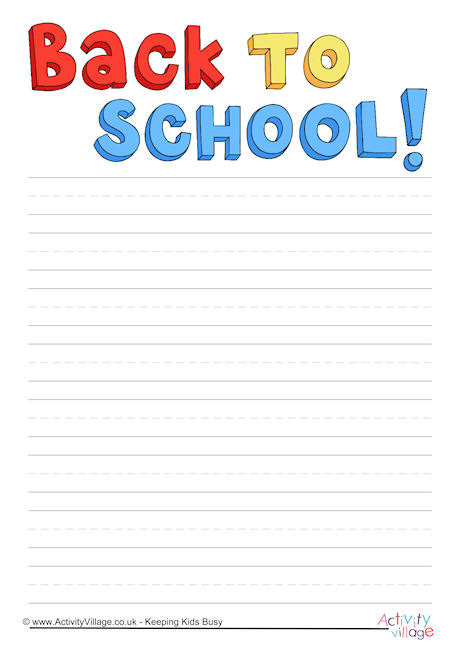
“Literary intellectuals at one pole-at the other scientists,” Snow wrote. Snow gave his famous lecture, later the essay “The Two Cultures,” describing the humanistic and scientific communities as tribes losing contact with each other. It is frankly amazing.” Neither the engineers building the linguistic tech nor the educators who will encounter the resulting language are prepared for the fallout.Ī chasm has existed between humanists and technologists for a long time. Kevin Bryan, an associate professor at the University of Toronto, tweeted in astonishment about OpenAI’s new chatbot last week: “You can no longer give take-home exams/homework … Even on specific questions that involve combining knowledge across domains, the OpenAI chat is frankly better than the average MBA at this point.
/student-writing-589b4b813df78caebcb4396c.jpg)
That entire tradition is about to be disrupted from the ground up.
School paper writer how to#
It is the way we teach children how to research, think, and write. The essay, in particular the undergraduate essay, has been the center of humanistic pedagogy for generations. It still takes a little initiative for a kid to find a text generator, but not for long.
School paper writer upgrade#
Last week, OpenAI released an advanced chatbot named ChatGPT that has spawned a new wave of marveling and hand-wringing, plus an upgrade to GPT-3 that allows for complex rhyming poetry Google previewed new applications last month that will allow people to describe concepts in text and see them rendered as images and the creative-AI firm Jasper received a $1.5 billion valuation in October. The world of generative AI is progressing furiously. GPT-3 isn’t “somebody else”-it’s a program. They don’t feel like they’re cheating, because the student guidelines at their university state only that you’re not allowed to get somebody else to do your work for you. In May, a student in New Zealand confessed to using AI to write their papers, justifying it as a tool like Grammarly or spell-check: “I have the knowledge, I have the lived experience, I’m a good student, I go to all the tutorials and I go to all the lectures and I read everything we have to read but I kind of felt I was being penalised because I don’t write eloquently and I didn’t feel that was right,” they told a student paper in Christchurch.

Sharples’s intent was to urge educators to “rethink teaching and assessment” in light of the technology, which he said “could become a gift for student cheats, or a powerful teaching assistant, or a tool for creativity.” Essay generation is neither theoretical nor futuristic at this point.

The passage reads like filler, but so do most student essays.

(The whole essay, which Sharples considered graduate-level, is available, complete with references, here.) Personally, I lean toward a B+. Pass or fail? A- or B+? And how would your grade change if you knew a human student hadn’t written it at all? Because Mike Sharples, a professor in the U.K., used GPT-3, a large language model from OpenAI that automatically generates text from a prompt, to write it. Ultimately, we need to understand the interactions among learning styles and environmental and personal factors, and how these shape how we learn and the kinds of learning we experience. Others might develop a particular learning style by trying to accommodate to a learning environment that was not well suited to their learning needs. Some students might develop a particular learning style because they have had particular experiences. The construct of “learning styles” is problematic because it fails to account for the processes through which learning styles are shaped.


 0 kommentar(er)
0 kommentar(er)
